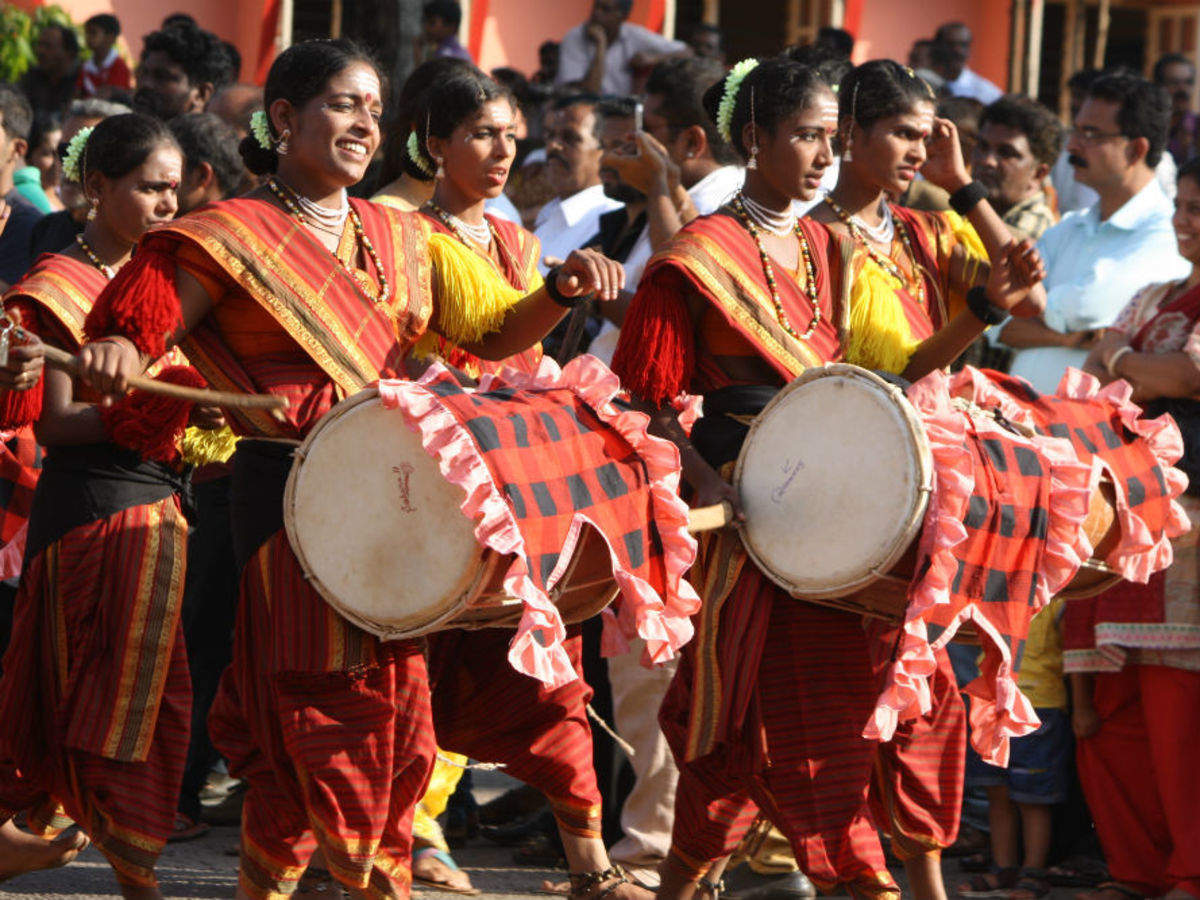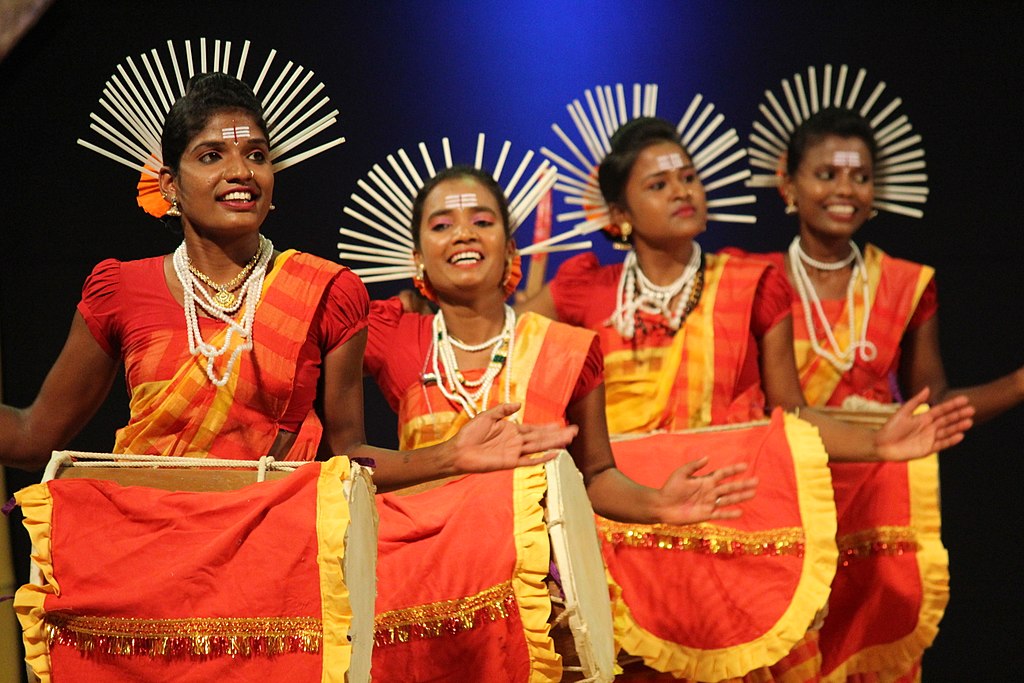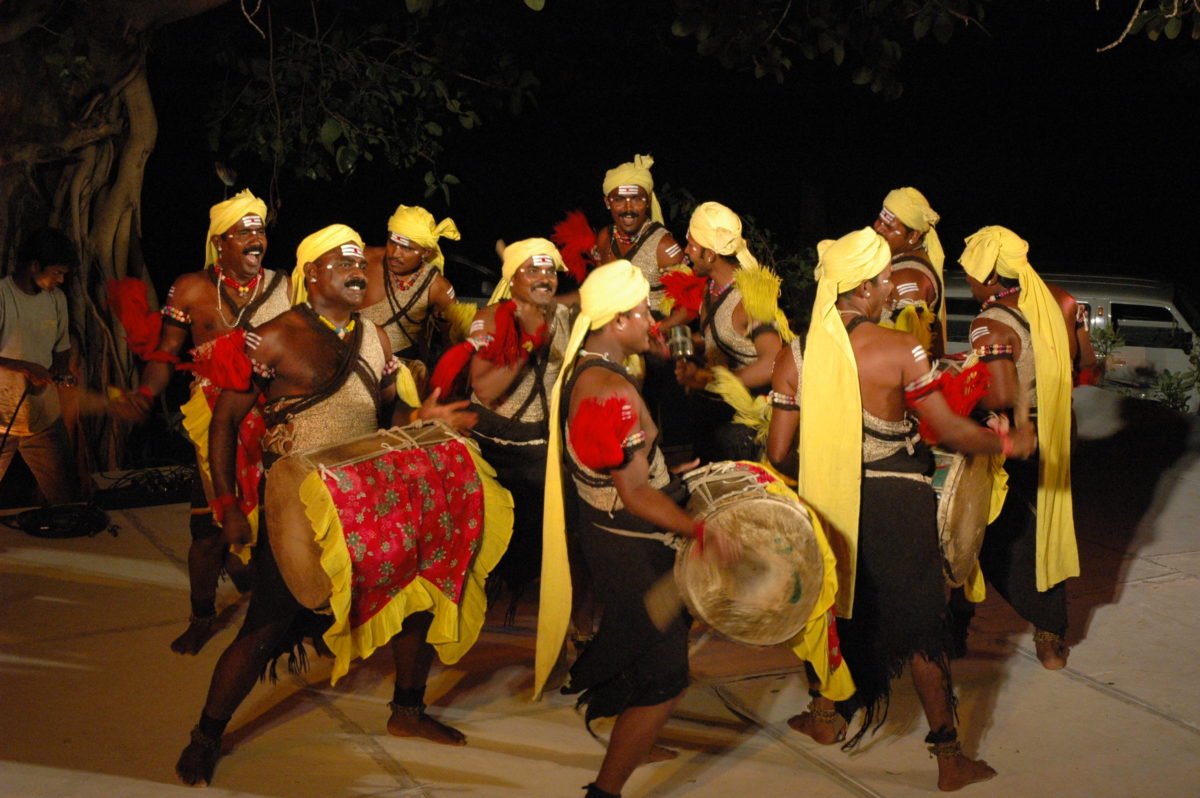ॐ श्री गुरुभ्यो नमः ॐ श्री शिवानन्दाय नमः ॐ श्री चिदानन्दाय नमः ॐ श्री दुर्गायै नमः
Source of all Images in this Blog-post : Google Images : ‘Google Image Search’ will reveal the multiple sources of every single image shared in this Blog. For more details, kindly see ‘Disclaimer‘
Dollu Kunitha is a traditional folk dance from the southern Indian state of Karnataka that incorporates the use of drums. The dance is typically performed during religious festivals and ceremonies, as well as social events such as weddings.
The dance is characterized by its energetic movements and the rhythmic beats of the drums. The performers, known as Kunitha dancers, wear colorful costumes and play the drums while dancing in unison.
Dollu Kunitha has a long history in Karnataka, dating back to ancient times. The dance is believed to have originated as a form of worship for the goddess Ellamma, who is worshipped in many parts of the state.
Today, Dollu Kunitha is recognized as an important cultural tradition in Karnataka and is often performed at cultural events and competitions. The dance has also gained popularity beyond the borders of the state, with performances taking place in other parts of India and even abroad.
Dollu Kunitha is more than just a dance; it is a symbol of Karnataka’s rich cultural heritage and serves as a reminder of the state’s vibrant traditions. The dance continues to evolve and adapt to changing times while remaining true to its roots, ensuring that it will remain an important part of Karnataka’s cultural landscape for generations to come.

- Origin: Dollu Kunitha originated in the regions of Karnataka’s Malenadu and Karavali areas. The dance is believed to have started as a form of worship for the goddess Ellamma, who is worshipped in many parts of the state.
- Musical Instruments: The dance incorporates the use of drums called Dollu, which are made of hollowed-out tree trunks and covered with animal hide. The performers play the drums in unison while dancing.
- Costumes: The performers wear colorful traditional costumes, which typically include a dhoti and a shirt, along with a turban or headgear.
- Themes: Dollu Kunitha performances often depict mythological or historical events and stories. Some of the common themes include stories from the Hindu epics such as the Mahabharata and the Ramayana, as well as local folk tales.
- Performances: Dollu Kunitha is typically performed during religious festivals and ceremonies, as well as social events such as weddings. The dance is accompanied by singing and chanting, which adds to the overall festive atmosphere.
- Recognition: Dollu Kunitha has been recognized as an important cultural tradition in Karnataka and has been showcased at various cultural events and competitions. The dance has also gained popularity beyond the borders of the state and has been performed in other parts of India and abroad.
- Importance: Dollu Kunitha is not just a dance but also a symbol of Karnataka’s rich cultural heritage. It serves as a reminder of the state’s vibrant traditions and has played an important role in preserving and promoting the region’s folk culture.
National Recognition for the Dance
Dollu Kunitha has received national recognition in India. In 2011, the Ministry of Culture, Government of India, included Dollu Kunitha in its list of intangible cultural heritage. This recognition has helped to promote and preserve the dance form and has brought it to the attention of a wider audience. Additionally, the dance has been showcased at various national and international cultural events, further contributing to its popularity and recognition.
Was the dance performed during any national event in India?
Dollu Kunitha has been performed at various national events in India. For example, the dance was performed during the opening ceremony of the Commonwealth Games held in New Delhi in 2010, which was a major international sporting event. The performance was well received and helped to showcase Karnataka’s rich cultural heritage to a global audience. Additionally, Dollu Kunitha has been performed at other national events such as the Republic Day Parade and cultural festivals organized by the government. The dance has also been featured in various television shows and documentaries, further increasing its popularity and recognition.
Dollu Kunitha is performed by various groups and communities in Karnataka, and many of them have become famous for their performances. Here are some of the top performers of Dollu Kunitha:
- Sri Gayatri Dollu Kunitha Kalasangha: This group from the town of Doddaballapura near Bangalore is one of the most famous Dollu Kunitha troupes in Karnataka. They have won numerous awards and have performed at various national and international events.
- Sri Basaveshwara Dollu Kunitha Kala Sangha: This group from Koppal district in North Karnataka is another well-known Dollu Kunitha troupe. They have won several awards and have performed at many cultural events and competitions.
- Sri Vinayaka Dollu Kunitha Sangha: This group from the town of Chitradurga in Karnataka is also famous for its Dollu Kunitha performances. They have won many awards and have performed at various events in Karnataka and other parts of India.
- Sri Renuka Yellamma Dollu Kunitha Sangha: This group from the village of Saundatti in Karnataka is known for its performances of the dance form as a form of worship to the goddess Renuka Yellamma. They have won many awards and have performed at various cultural events in Karnataka.
- Sri Mallikarjuna Swamy Dollu Kunitha Kalasangha: This group from the town of Gadag in Karnataka is also famous for its Dollu Kunitha performances. They have won several awards and have performed at various cultural events and competitions in Karnataka.
These are just a few examples of the many talented Dollu Kunitha performers in Karnataka. Each group has its unique style and approach to the dance, which adds to the diversity and richness of the art form.

*******************
The Dollu dance has been performed continuously for generations with renewed energy. It is an integral part of religious rituals and village festivals in North Karnataka, and hardly any such event takes place without it. During these festivities, the Dollu dance takes center stage and becomes the focal point around which other important activities are built.

Since this dance demands strength, muscle power and the spirit of endurance, only well-built sturdy persons of enough stamina alone can take part in it.
The troupe consists of about a dozen artists as dancing partners. Against the background they have Tala, Tappadi, trumpets, Gong and flute, raised to a high-pitch.
These instruments are perforce used to reinforce the rich vibrations of Dollu.
Dollu Kunitha By Women Performers :

